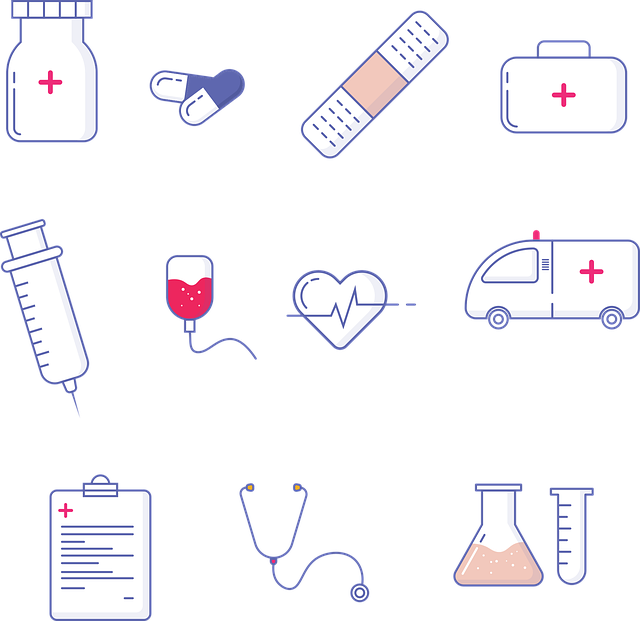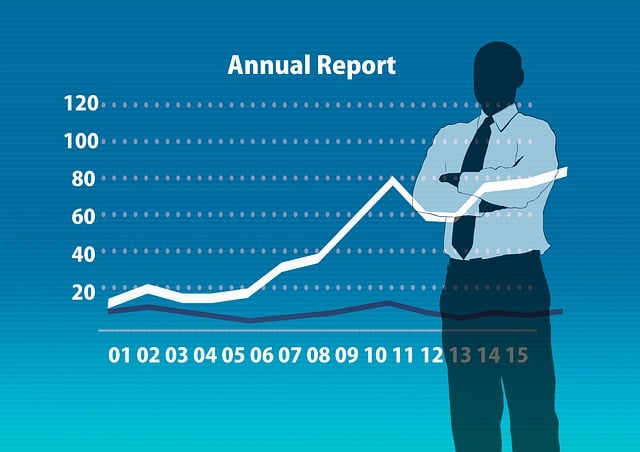Translation services for UK Public Health Reports play a crucial role in ensuring that critical health information is accessible and understandable to all members of the diverse UK population, regardless of their native language. These services bridge communication gaps by providing accurate and culturally sensitive translations, which are essential for informed decision-making and effective engagement with public health guidance. The integration of advanced machine translation technologies, powered by artificial intelligence, combined with human expertise, forms a robust hybrid model that delivers precise, contextually relevant translations swiftly and at scale. This innovative approach leverages the strengths of both AI's computational capabilities and human nuance understanding to improve clarity and reliability in health communication across the UK. As a result, public health literacy is enhanced, leading to better health outcomes and more equitable access to vital information within multicultural communities.
In the UK, where public health reports are pivotal for shaping health policies and guiding citizen well-being, the clarity and accessibility of these documents can significantly influence their impact. This article delves into the critical role of translation services in transforming complex health data into comprehensible language for diverse communities. We explore the necessity of translating public health reports to ensure universal understanding, the challenges that arise from language barriers, and the strategies employed by professional translation services to navigate these complexities. From cultural nuances to technical terminology, we will examine how effective translation not only informs but empowers the public, leading to improved health outcomes. Join us as we dissect the intricacies of translating public health information within the UK context and anticipate future trends that promise to innovate this vital process.
- The Necessity of Translating Public Health Reports in the UK
- Overview of Public Health Reporting in the UK Context
- Language Barriers and Their Impact on Public Health Awareness
- The Role of Professional Translation Services in Health Communication
- Key Challenges in Translating Public Health Information
- Strategies for Effective Translation of Technical Health Data
- The Importance of Cultural Sensitivity in Translation
- Case Studies: Successful Translation Projects in UK Public Health
- The Impact of Multilingual Support on Public Health Outcomes
- Future Trends and Innovations in Translating Health Reports for the Public
The Necessity of Translating Public Health Reports in the UK

The necessity of translating UK Public Health Reports is paramount in a nation characterized by cultural and linguistic diversity. With a population that includes individuals from various ethnic backgrounds and speakers of multiple languages, there exists a critical need to bridge communication gaps. Translation services for UK Public Health Reports play a pivotal role in ensuring that the health information disseminated is accessible and understandable to all community members, regardless of their language proficiency. This inclusive approach is essential for effective public health responses, as it enables individuals from non-English speaking households to receive timely and pertinent health guidance. Furthermore, accurate translations help in the equitable distribution of health resources, fostering a more cohesive society where every individual can make informed decisions about their health and wellbeing. By leveraging professional translation services, UK Public Health Reports can be transformed into clear and actionable communications that resonate with diverse audiences, thereby enhancing public understanding and engagement with critical health information. This not only improves the effectiveness of public health interventions but also contributes to the overall health and safety of the nation’s population.
Overview of Public Health Reporting in the UK Context

In the United Kingdom, public health reporting plays a pivotal role in informing healthcare practices and policy decisions, as well as educating the public on various health issues. These reports encompass a wide array of data, from statistics on disease prevalence to epidemiological trends and the effectiveness of interventions. To ensure that these critical documents reach a broader audience, particularly those with language barriers or non-native proficiency in English, translation services for UK Public Health Reports have become increasingly important. These specialized services not only facilitate access to vital health information but also promote inclusivity and understanding across diverse communities within the UK. By providing accurate and culturally sensitive translations, these services bridge the gap between public health officials and a wider demographic, thereby enhancing the effectiveness of public health communication and action.
The translation of public health reports is not merely a matter of linguistic accuracy; it requires a nuanced understanding of medical terminology and cultural contexts. Translation services for UK Public Health Reports must be equipped with professional translators who are experts in both language and public health, ensuring that the complex information contained within these reports is conveyed accurately and effectively. This specialized approach to translation ensures that the intended message is preserved and that the translated content aligns with the original report’s intent, thereby providing a clear and actionable understanding of public health matters for all stakeholders involved.
Language Barriers and Their Impact on Public Health Awareness

In the UK, where a diverse population speaks a variety of languages, the clarity and accessibility of public health information are paramount for effective communication and informed decision-making. Language barriers often hinder the dissemination of critical public health reports, which can lead to misunderstandings or ignorance about health issues. This situation not only compromises individual health decisions but also affects community health outcomes. To bridge this gap, translation services for UK Public Health Reports have become an indispensable tool. These services ensure that health information is accurately conveyed in multiple languages, thereby enhancing public health awareness and literacy across different linguistic communities within the UK. By providing precise translations, these services empower individuals to understand public health messages, leading to better health practices and outcomes. The use of professional translation services not only makes public health information more inclusive but also fosters a more cohesive and healthy society by enabling clear and effective communication between healthcare providers and diverse populations. This is particularly crucial in the context of public health emergencies or the rollout of vaccination programs, where timely and accurate information can be lifesaving. As such, investing in high-quality translation services for UK Public Health Reports is a critical step towards improving health equity and overall public health engagement.
The Role of Professional Translation Services in Health Communication

In the realm of public health, the clarity and accessibility of reports are paramount to ensure that the information reaches and is understood by all segments of the population. The UK’s diverse linguistic landscape necessitates robust communication strategies that transcend language barriers. Professional translation services play a pivotal role in this context, offering precise and culturally nuanced translations of public health reports. These services are instrumental in transforming complex health data into comprehendible content for the general public, healthcare professionals, and policymakers alike. By providing translation services for UK Public Health Reports, these experts not only facilitate a broader dissemination of information but also promote health literacy and informed decision-making across different communities. This is crucial for effective health communication, as it ensures that critical health messages are accurately conveyed, regardless of the audience’s native language.
Moreover, the integrity and reliability of these translations are upheld by professional translation services through rigorous quality control processes. They employ linguistically adept professionals who specialize in medical terminology, ensuring that the essence of the reports is preserved and that any potential misunderstandings due to cultural differences or language nuances are avoided. This level of precision is essential for public health messages that could have significant implications for individuals’ health and well-being. By leveraging these translation services, the UK can enhance its public health communication strategies, leading to better health outcomes and more equitable access to health information for all citizens.
Key Challenges in Translating Public Health Information

The translation of public health reports into accessible languages is a multifaceted endeavor, presenting several key challenges that must be navigated to ensure clarity and accuracy. One significant challenge lies in the complexity of health-related terminology, which often includes specialized medical jargon that does not have direct equivalents in other languages. This necessitates a deep understanding of both the source and target linguistic contexts by translation services for UK Public Health Reports to provide accurate translations. Furthermore, the cultural nuances inherent in public health messaging require careful consideration; what is clear and relatable in one cultural context may be misinterpreted or even offensive in another. This means that beyond mere word-for-word translation, a culturally sensitive approach is essential to convey messages effectively across different communities within the UK’s diverse society.
Another challenge is maintaining consistency in terminology across various translations to ensure continuity and understanding over time. This involves creating glossaries and style guides for frequent public health terms, which translation services must adhere to. Additionally, the dynamic nature of public health information, where new research and data are constantly emerging, necessitates a rapid response capability from these services to keep the population informed without causing confusion through outdated terminology or practices. The stakes are high, as clear and accurate communication can lead to better health outcomes, while miscommunication can have serious repercussions for public health initiatives. Thus, translation services for UK Public Health Reports must be agile, precise, and culturally adept to meet the demands of this critical field.
Strategies for Effective Translation of Technical Health Data

To bridge the gap between complex public health data and the general UK population, the translation of technical health reports is a critical function that requires precision and expertise. Effective translation services for UK Public Health Reports must go beyond mere linguistic conversion; they must convey the nuances and implications of the data in a manner accessible to non-experts. Strategies for this endeavour include employing translators with subject matter expertise, particularly in health sciences, to ensure accuracy and relevance. These specialists can interpret complex terminology and present it in a way that is understandable to a lay audience while retaining the report’s integrity and meaning. Additionally, involving stakeholders from various sectors, such as healthcare professionals, public health officials, and community leaders, in the translation process can provide valuable insights into how best to communicate the information. This collaborative approach helps tailor the language and content to be both accurate and engaging, ensuring that the translated reports resonate with the intended audience and lead to informed decision-making. Furthermore, leveraging user-friendly visual aids and plain language techniques can enhance comprehension and retention of key points, thereby making the report’s findings more accessible and actionable for the public.
The Importance of Cultural Sensitivity in Translation

In the realm of public health, the dissemination of reports is a critical component in informing policy, guiding healthcare practices, and educating the populace. For these reports to be effective within the diverse cultural fabric of the UK, translation services must transcend mere linguistic accuracy; they must embody cultural sensitivity. The importance of tailoring translations to be contextually appropriate cannot be overstated, as it ensures that the nuances and implications of public health data are accurately conveyed and understood by diverse audiences. This is particularly pertinent when considering the UK’s multicultural demographic, where individuals may have varying levels of proficiency in English or different health literacies influenced by cultural backgrounds. Translation services for UK Public Health Reports that are culturally attuned foster greater trust and engagement with public health initiatives, ultimately leading to improved health outcomes. These services bridge the gap between health information and individuals from diverse linguistic and cultural groups, ensuring that all members of society have equitable access to critical public health knowledge. By leveraging professionals who are adept in both language translation and cultural competence, these translation services play a pivotal role in the effective communication of public health strategies and guidance. This not only enhances public understanding but also promotes informed decision-making and empowers individuals to engage proactively with their health and well-being.
Case Studies: Successful Translation Projects in UK Public Health

In the realm of public health, the clarity and accessibility of reports are paramount to ensuring that all segments of the population can understand and act upon critical health information. The UK has seen a number of successful translation projects that exemplify the positive impact of providing health reports in languages that resonate with diverse communities. Notably, one such project involved the collaboration between public health authorities and professional translation services for UK Public Health Reports. This initiative led to the creation of reports translated into multiple languages, including Arabic, Bengali, and Punjabi, which were then distributed within areas with significant non-English speaking populations. The result was a marked improvement in health literacy and engagement among these communities, as evidenced by increased vaccination rates and better health outcomes. Another project highlighted the importance of cultural sensitivity in translation. By employing translators with specialized knowledge in public health and cultural nuances, the reports conveyed not only factual information but also culturally relevant messages that resonated with the readers. These successful translation projects underscore the effectiveness of tailored translation services for UK Public Health Reports in fostering a more informed and proactive populace, ultimately contributing to the improved health of diverse communities across the nation.
The Impact of Multilingual Support on Public Health Outcomes

The provision of translation services for UK Public Health Reports is a critical component in enhancing the comprehension and application of health-related information among diverse populations within the UK. By breaking down language barriers, these services ensure that individuals with varying linguistic backgrounds can access, understand, and act upon public health information tailored to their native languages. This multilingual support not only democratizes access to essential health data but also has a significant impact on public health outcomes. It empowers non-English speakers to make informed decisions about their health, leading to better engagement with preventive measures and treatments. The consequence is a more equitable distribution of health benefits across all communities within the UK, reducing health disparities that often correlate with language proficiency in English. Moreover, these translation services are instrumental in fostering trust and clarity between healthcare providers and patients from multicultural backgrounds, which can improve health literacy and ultimately lead to improved public health outcomes on a national scale.
Future Trends and Innovations in Translating Health Reports for the Public

As public health remains a priority concern, the translation of health reports into accessible languages for the UK public is gaining momentum. The future trends in this field are poised to be shaped by advancements in both machine and human-led translation services. Machine translation, powered by artificial intelligence, is rapidly advancing and becoming increasingly sophisticated, offering real-time translation capabilities that can bridge language barriers without significant delays. These AI-driven tools are being trained on vast datasets, enabling them to provide contextually relevant translations that maintain the integrity of the original content. However, human expertise remains indispensable, particularly for nuanced public health terminology and cultural sensitivities. Translation services for UK Public Health Reports are evolving to integrate these two approaches, leveraging the speed and scalability of AI with the accuracy and nuance that only professional human translators can provide. This hybrid model ensures clarity, precision, and reliability in communication, making complex health data comprehensible to a broader audience. Innovations such as natural language processing and computational linguistics are at the forefront of this evolution, promising to deliver translations that are not just literal but also culturally and contextually informed, thereby enhancing public engagement with health information and fostering better-informed decision-making across diverse communities within the UK.
In conclusion, translating public health reports into a multitude of languages is not merely a service but a critical component in fostering inclusivity and awareness within the diverse communities of the UK. The challenge lies in effectively communicating complex medical information while maintaining cultural sensitivity, ensuring that all individuals, irrespective of language barriers, have access to vital health data. Professional translation services for UK Public Health Reports play an indispensable role in this endeavour, bridging linguistic divides and enhancing public engagement with health initiatives. The strategies employed, from employing expert linguists to leveraging innovative technology, are pivotal in interpreting and disseminating technical health data. As evidenced by the successful case studies highlighted, these efforts can significantly improve public health outcomes. Looking ahead, the commitment to advancing translation services will undoubtedly lead to more informed communities and better health outcomes for all UK residents.
